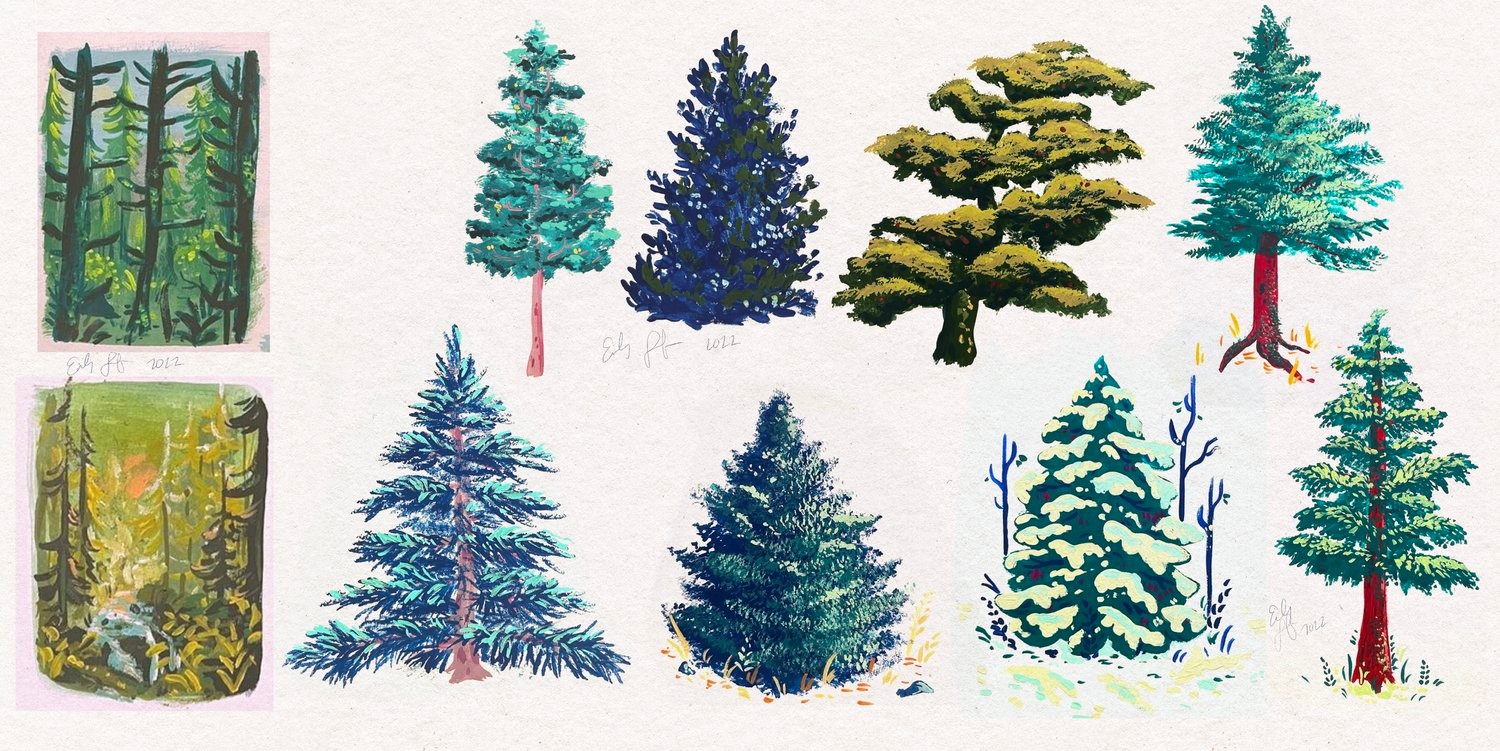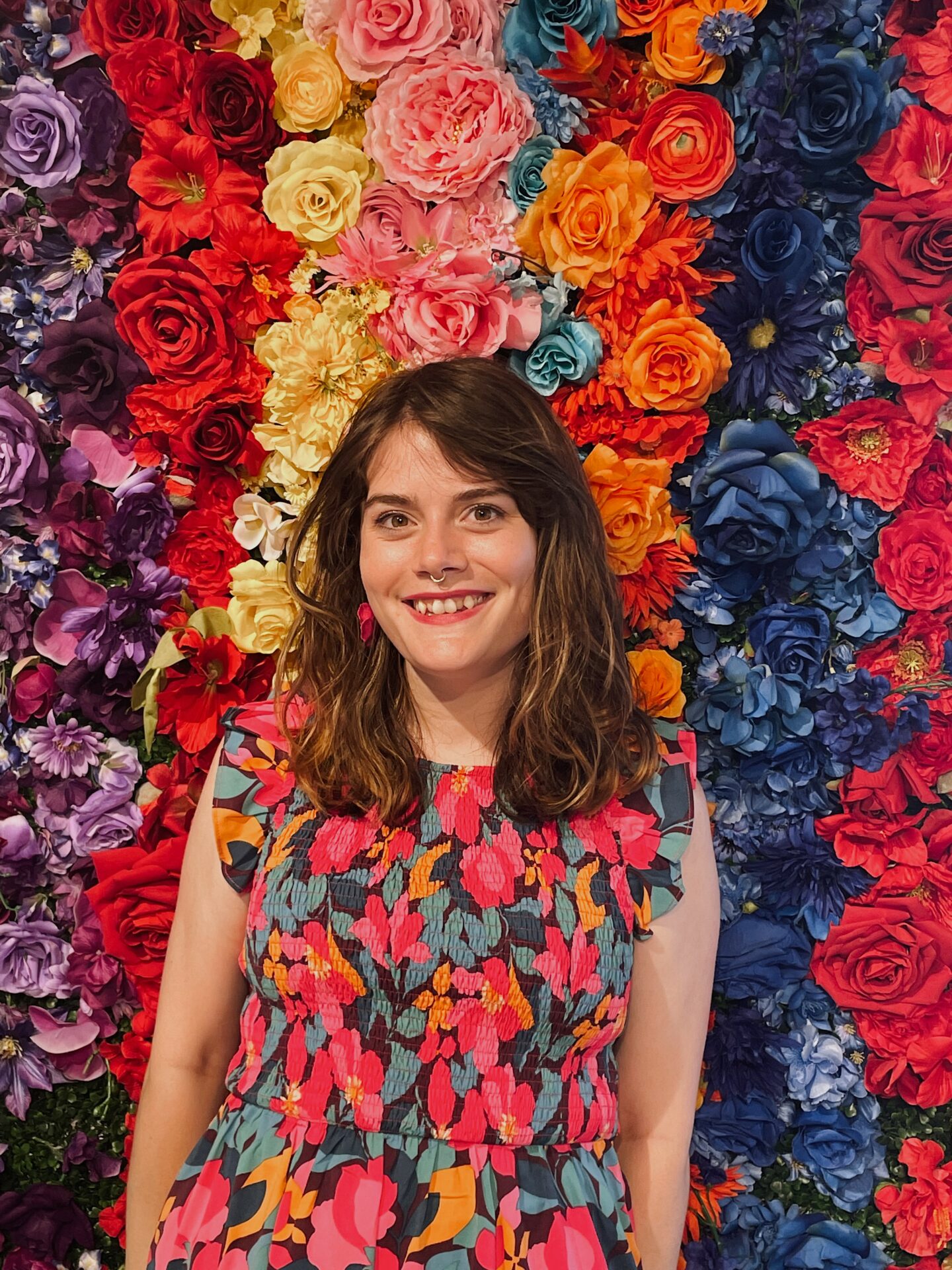We’re excited to introduce you to the always interesting and insightful Emily Larrabee. We hope you’ll enjoy our conversation with Emily below.
Hi Emily, thanks for sharing your insights with our community today. Part of your success, no doubt, is due to your work ethic and so we’d love if you could open up about where you got your work ethic from?
With the experience I have in freelance work I’ve quickly learned the value in making sure to impress in whatever timeframe a project allows me and having a good work ethic is the best way to accomplish this. Style and process can be so subjective when working with art directors and authors but being able to communicate ideas, take critique, edit and stay ahead of deadlines is universally appreciated. Being a strong worker is the easiest way to find new work.
Thanks, so before we move on maybe you can share a bit more about yourself?
So as of now I’m doing freelance work in a lot of different areas, such as card games, visual and character development, comic panels and greeting cards. So much of what I’ve been working on in the last year is not something I would’ve envisioned myself doing but it’s been fun to stretch my style and useful in my growth as an artist to jump around a variety of projects and audiences. In my spare time I’ve been focusing on improving my portfolio with more visual development work and writing my own stories. I’d love for this improvement to turn into more animation work and to find a way to put my own stories and worlds out there for viewers- likely in comic form. It’s still pretty far from being ready at this moment but it’s getting there.
If you had to pick three qualities that are most important to develop, which three would you say matter most?
1- Knowing how to handle clients notes is a big part of what I do. Clients don’t always make edits that I agree with and learning the battles to fight (I.e. fighting for a piece that, after making the edits, hasn’t been improved) and what to let go is super important. As is learning how to phrase a pushback against edits, it can’t be personal in any sense- it has to solely be in an effort to make the best piece you possibly can for them.
2- Another thing I’d recommend is staying super transparent through every stage of working on a project and staying in communication with a client as much as needed. I probably update too much but it helps me not need to backtrack and also clients really appreciate it. It helps them be able to envision things more clearly before committing to a final and the faster I can answer their questions helps everyone. Of course be sure you aren’t overworking yourself and being bombarded with questions all hours of the day but it’s smart to be reliable in that sense.
3- The third is one I’m still learning. I’m more introverted but making friends in the industry is super important. I’ve been doing my best to go to more conventions and be more open about getting my work in front of people. It’s a tough gig to get a break in so having friends to help and get help from makes it less stressful.
Do you think it’s better to go all in on our strengths or to try to be more well-rounded by investing effort on improving areas you aren’t as strong in?
Can I answer with “a little bit of both”? Hope so. Because there’s different aspects that require one or the other. I’m better with characters and costumes, and that’s what I enjoy working on. So when constructing my portfolio I put pieces focusing on character and costume highest up, while areas I’m perhaps less interested in go further down. That way art directors viewing my portfolio can see instantly what I’m most interested in and am best at but also see that I’m well rounded and talented enough to do more than just one thing. I want be hired for positions that compliment my stronger skills but I also need to be prepared for positions that call for some knowledge of other skills. I got a recent comic panel cleanup job because of my character work, but I also had to do plenty of props and backgrounds for it. So a strong foundation is great but then to build smaller skills on that foundation is even better.
Contact Info:
- Website: https://www.emilylarrabeeillustration.com
- Instagram: https://www.instagram.com/emilysketch_
- Linkedin: https://www.linkedin.com/in/emily-larrabee-1493b8171/











